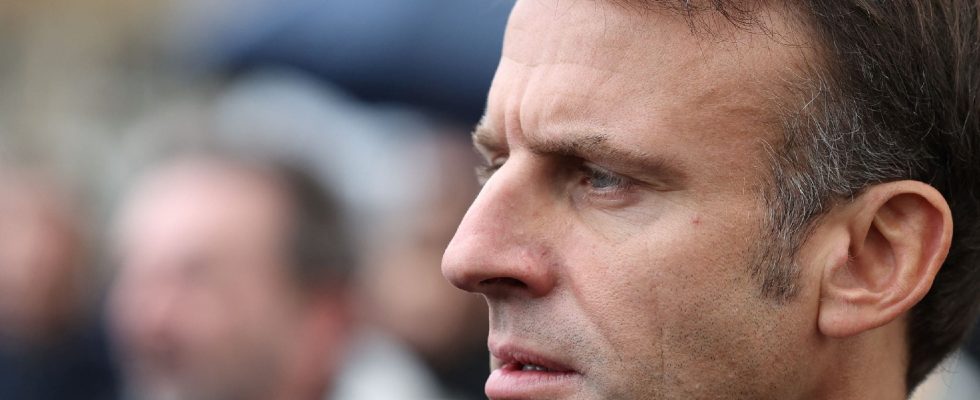“A France where our Jewish fellow citizens are afraid is not France.” Emmanuel Macron launched a message of unity on Saturday November 11 in a Letter to the French published in The Parisian, on the eve of the demonstrations against anti-Semitism which are being held this Sunday, November 12. In Paris, a “great civic march” should signal general mobilization in the face of the resurgence of anti-Semitic acts since the return of war to the Middle East, according to its initiators.
“For the Republic, against anti-Semitism”: it is notably behind this banner that the presidents of the National Assembly Yaël Braun-Pivet and of the Senate Gérard Larcher will lead the Parisian procession, which will link the Bourbon and Luxembourg palaces to from 3 p.m., with departure from the Esplanade des Invalides. The leading square will bring together personalities “embodying” the Republic but “no party leaders”, according to Yaël Braun-Pivet’s entourage. In the front row, in particular, Prime Minister Élisabeth Borne, whose Jewish father was deported, as well as former presidents François Hollande and Nicolas Sarkozy.
Letter to the French
After hesitating, Emmanuel Macron will ultimately only be present “in thought”, while other gatherings are planned in several cities. In his Letter to the French unveiled on Saturday November 11, the Head of State deplores “the unbearable resurgence of unbridled anti-Semitism” since the events of October 7. “Whether it is religious, social, identity-related or racial, anti-Semitism is always as Émile Zola presented it: odious.” Seeing “a reason for hope” in this Sunday’s marches “for the Republic, against anti-Semitism, for the release of hostages and for peace”, he believes that they “will express what is the very essence of French project: the refusal of the assignment of difference. The defense of universalism”.
The far right presents
“This fight against anti-Semitism must never divide us or ever lead to pitting some of our compatriots against others. In our History, anti-Semitism was always the prelude to other hatreds and racism,” insists -he. A barely veiled address against La France insoumise on the one hand, which chose to boycott this march, refusing to march alongside the extreme right, and on the other hand to the National Rally, whose presence makes the left and the majority cringe, due to the heritage of this party.
Emmanuel Macron had thus warned, earlier in the week, against any confusion between “the rejection of Muslims and the support of Jews”. For Marine Le Pen, the march should “bring together” the French around “two things: we do not accept the anti-Semitism which strikes our compatriots of the Jewish faith […] and we will fight Islamist fundamentalism which is a totalitarian ideology”, she declared. This Sunday morning, Elisabeth Borne also considered that “postures have no place” in the march against anti-Semitism. Her remark targets she also both La France Insoumise (LFI) whose “absence speaks for itself” and the National Rally (RN) whose “presence fools no one”, specified the Prime Minister in a message on ex-Twitter).
“Republican cord”
The left-wing parties EELV, PS and PCF, as well as associations for the defense of human rights and youth organizations, will march behind a common banner “against anti-Semitism and all the perpetrators of hatred and racism” in an approach of “republican cordon” against the extreme right. In the absence of a common march, many rebels will line up behind several other initiatives this Sunday. Many representatives of religions will be present, but few Muslims, several organizations regretting that the march will be held “without a word on Islamophobia”.
Furthermore, a major device will be deployed with “more than 3,000 police officers and gendarmes” ensuring security as well as “elite units mobilized”, according to the Minister of the Interior Gérald Darmanin.
